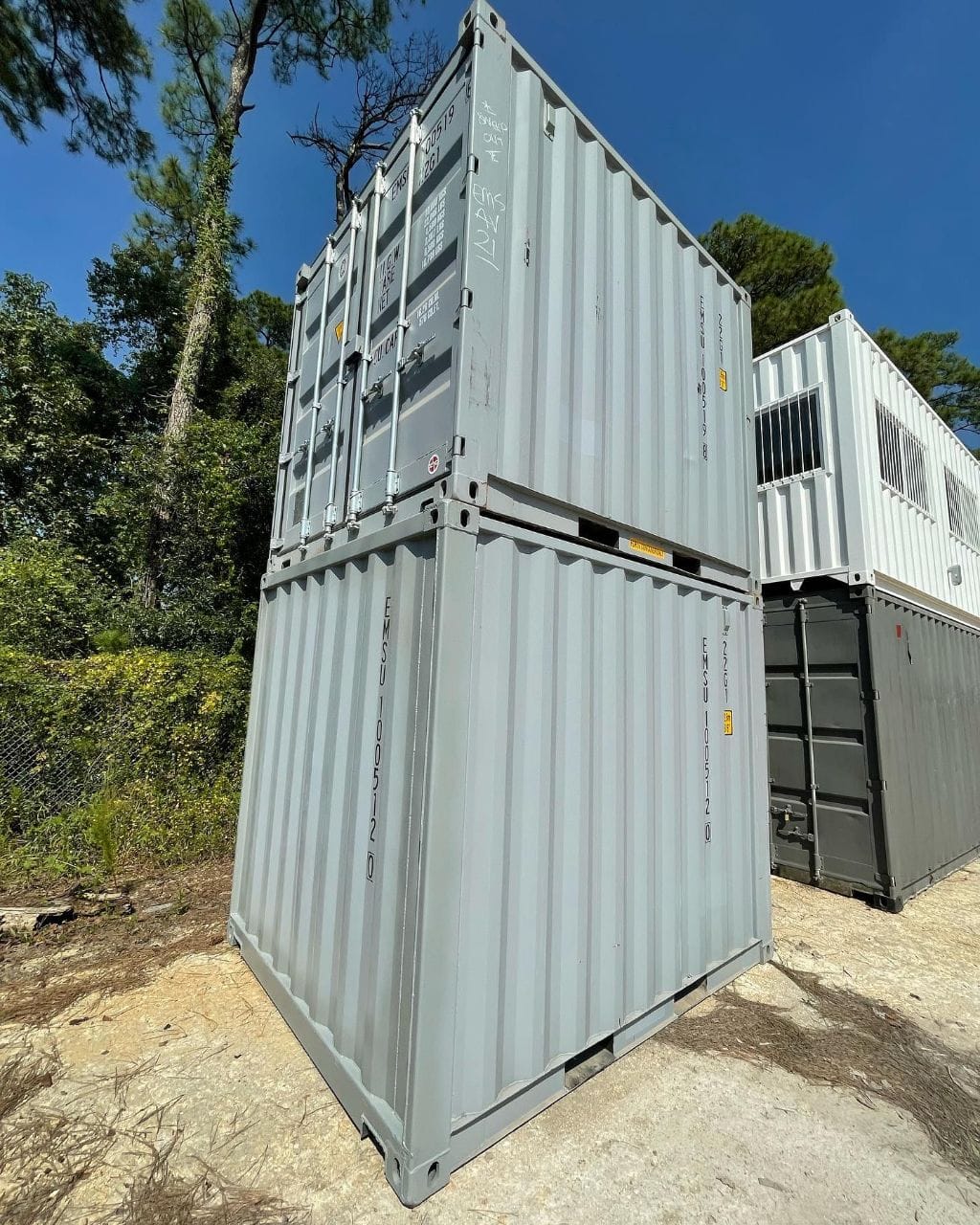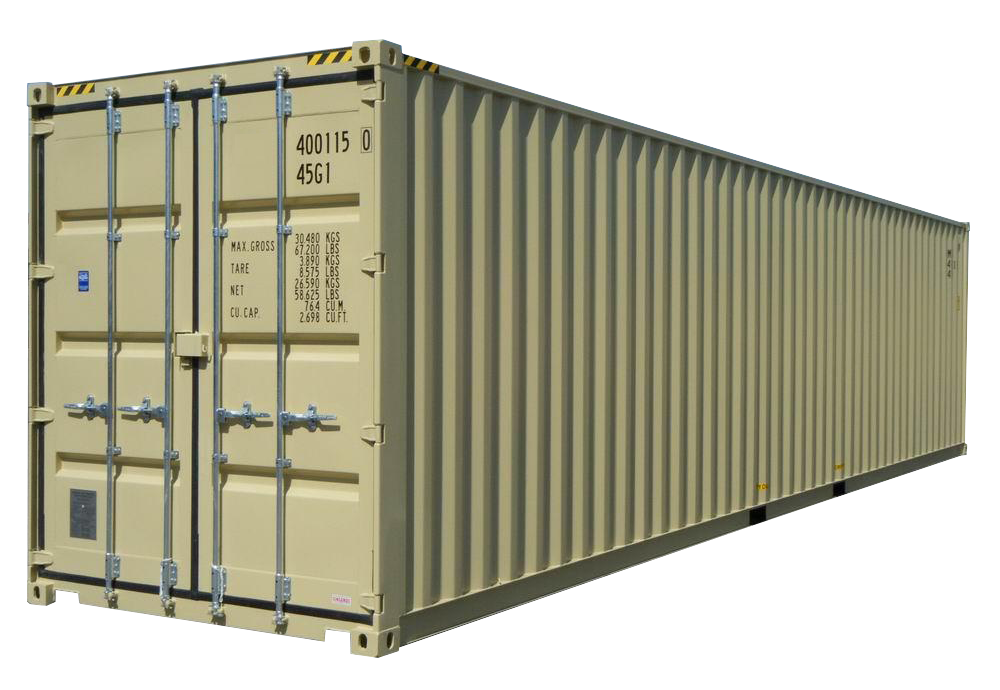The Ultimate Overview to Picking the Right Delivery Container for Your Demands
When it pertains to picking the best delivery container, comprehending your particular demands is necessary. You'll want to think about variables like size, kind, and material to guarantee you make the most effective option. From standard sizes to specialized choices, there's a great deal to explore. Plus, budgeting for both the container and any type of adjustments can make a large distinction. Allow's damage down the essential facets to help you find the ideal fit for your needs.
Recognizing Delivery Container Sizes
When you're selecting a delivery container, recognizing the numerous dimensions available is vital for making the best choice. Delivering containers normally can be found in standard sizes of 20 and 40 feet, however you'll also discover other measurements. Understanding the size you need relies on what you plan to store or transport.If you're relocating smaller products, a 20-foot container may be excellent, while larger shipments often need a 40-foot container. Bear in mind that the height can additionally differ; high dice containers offer additional vertical room, which can be useful for taller goods - Shop New Shipping Container 40' x 8' x 9’6".Before choosing, measure your cargo, and consider just how much room you'll require for loading and unloading. Always element in possible future demands-- going with a somewhat bigger container might save you problem down the line. Ultimately, picking the best size will boost effectiveness and ensure your things are protected during transit
Kinds Of Shipping Containers Available
There are several kinds of delivery containers readily available, each made for details functions and cargo requirements. The conventional completely dry container is versatile, excellent for general freight. If you're shipping disposable products, think about a refrigerated container, which preserves a controlled temperature level. For large items, high dice containers offer added elevation, fitting taller loads.If you require to deliver hefty equipment or tools, level shelf containers supply a sturdy base without wall surfaces. On the other hand, open-top containers enable very easy loading of high freight, with a detachable tarp covering for protection. If you're seeking versatility, think about a retractable container that can be conveniently stored when not in use.Lastly, specialized containers like container containers are used for fluids, while vented containers are designed for bulk cargo that requires ventilation. Knowing your cargo kind will help you choose the right container to fulfill your shipping requires successfully.
Product Factors To Consider for Sturdiness
When choosing a delivery container, the material plays an essential duty in its longevity. You'll want to consider the benefits of steel versus aluminum, particularly pertaining to rust resistance. Comprehending these factors can help you make a more enlightened choice for your shipping needs.
Steel vs. Aluminum Containers
How do you select in between steel and light weight aluminum containers for your delivery needs? Beginning by thinking about resilience. Steel containers are durable and offer outstanding toughness, making them optimal for hefty tons and extreme problems. They resist damages from impacts and are commonly more economical, which can be a major variable for budget-conscious buyers.On the other hand, aluminum containers are lightweight, which can save you on delivery prices. They're much easier to maneuver and are an excellent option if you need to transport products frequently. Nevertheless, aluminum is typically more expensive and much less durable than steel. Evaluate your specific requirements thoroughly, including weight, cost, and the kind of cargo you'll be delivery, to make the appropriate option for your situation.
Rust Resistance Factors
Choosing the best product does not just include weight and cost; corrosion resistance plays a substantial role in durability. When selecting a delivery container, consider the environment it'll encounter. Steel containers, while strong, can rust otherwise properly treated. Seek alternatives with safety coverings or galvanization to improve their life-span. Aluminum, on the other hand, provides all-natural deterioration resistance, making it optimal for coastal areas or damp conditions. It can be a lot more pricey. Furthermore, analyze the container's usage-- if it'll be subjected to chemicals or harsh climate, prioritize products that can endure these conditions. Purchasing a corrosion-resistant container now can save you from pricey repairs or replacements down the line. Choose sensibly for long-lasting benefits.
Modifications and Customization Options
Delivering containers aren't simply for moving goods; they can be transformed to satisfy your specific needs via various modifications and modification options. You can convert a conventional container into a comfy workplace space, a short-term retail store, or also an individual fitness center. The opportunities are virtually endless.Think about including home windows, insulation, or ventilation to enhance comfort. You might additionally take into consideration electric circuitry, pipes, or perhaps custom shelving to improve capability. If protection's an issue, reinforced locks can offer tranquility of mind.For aesthetic charm, you can paint the container or include an one-of-a-kind design to make it stick out. Do not ignore floor covering alternatives-- next whether you desire sturdy plywood or something a lot more sophisticated, it can raise the space.Ultimately, customizing your shipping container to suit your needs can boost use and create a special setting that reflects your design.
Analyzing Your Transportation Demands
When it concerns utilizing your customized shipping container, understanding your transport requires is essential. Beginning by identifying what you'll be delivery-- whether it's hefty devices, retail items, or personal items. Each sort of freight has different needs pertaining to dimension, weight, and accessibility.Next, consider the distance and setting of transport. Are you delivering locally, nationally, or worldwide? This influences the container's style and performance. If you're making use of vehicles, ensure your container fits typical dimensions for easy loading and unloading.Additionally, think of transit conditions. Will your products require special protection from weather condition or temperature level fluctuations? If so, you may need insulation or air flow attributes in your container.Lastly, examine just how typically you'll be moving products. Frequent shipments may require a more long lasting and functional container to meet ongoing needs. By dealing with these variables, you'll be well-prepared to select the right shipping container for your demands.
Budgeting for Your Shipping Container
Establishing a spending plan for your delivery container is vital for ensuring a smooth acquiring process. Initially, figure out just how much you can afford to spend. Remember that rates can differ substantially based upon dimension, problem, and kind. New containers normally set you back extra, but used ones can supply considerable savings.Next, take into consideration any type of additional prices you might incur, such as transport fees, delivery charges, and adjustments. If you prepare to personalize the container, consider those costs as well. Research different providers to contrast rates and discover site here the very best offer that fulfills your needs.Don' t forget to consist of any type of licenses or regulations that might relate to your purchase and use the container. By clearly outlining your budget plan, you'll be better prepared to make enlightened decisions, ensuring you obtain the ideal container without damaging the bank.
Upkeep and Take Care Of Long life
To guarantee your delivery container lasts for several years, regular upkeep is essential. Beginning by examining the outside for corrosion, dents, and damage. If you find any type of concerns, address them right away to avoid more wear and tear. Tidy the container regularly, both in and out, to eliminate dirt, particles, and wetness that can bring about corrosion.Ensure the doors secure properly and lubricate the hinges to avoid corrosion and sticking. If you're making use of the container for storage, take into consideration adding air flow to decrease moisture and mold growth. For added protection, apply a rust-inhibiting paint or sealer annually.If your container's located in navigate to this site a harsh environment, like seaside areas, you might require to raise upkeep regularity. Keep an eye on the floor covering, also; any type of indications of wear must be fixed immediately. With these basic steps, you'll prolong the life of your shipping container substantially.
Often Asked Inquiries
Exactly how Do I Locate a Reliable Shipping Container Vendor?
To find a reliable delivery container distributor, start by researching online reviews, requesting for recommendations from buddies or market get in touches with, and comparing costs. Constantly inspect their credentials and assurance they provide top quality containers that meet your needs.

Can I Rent a Delivery Container Rather Than Buying?
Yes, you can definitely rent a delivery container rather of getting one. Numerous vendors provide rental options, which can conserve you cash and supply adaptability if you just require it for a short period.
What Allows Are Required for Container Positioning?

Are Delivery Containers Weatherproof and Suitable for Outdoor Storage?
Yes, shipping containers are usually weatherproof, created to hold up against severe problems. Their durable building and construction keeps your items secure and completely dry, making them ideal for exterior storage space. Simply ensure appropriate air flow to protect against dampness build-up inside.
Exactly how Do I Deliver a Delivery Container When Acquired?
